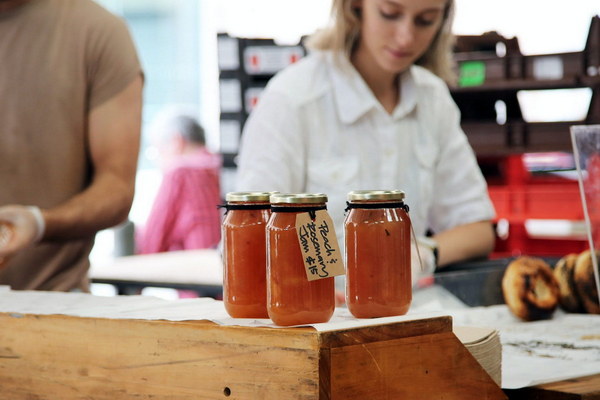Nurturing Health A Comprehensive Guide to Preschool Health and Wellness
In the fast-paced world we live in, the importance of health and wellness cannot be overstated, especially for the youngest members of our society. Preschoolers are at a crucial stage of development, where their bodies and minds are rapidly growing and adapting. This guide aims to provide a comprehensive overview of essential health and wellness practices tailored specifically for preschoolers, ensuring they grow up to be strong, healthy, and happy individuals.

Introduction: The Importance of Health and Wellness in Preschoolers
Health and wellness in preschoolers encompass a wide range of factors, including nutrition, physical activity, sleep, mental health, and social interaction. These factors play a significant role in shaping a child's overall well-being, setting the foundation for a lifetime of healthy habits. As parents, caregivers, and educators, it is our responsibility to foster an environment that promotes health and wellness in young children.
Nutrition: Building a Strong Foundation
A well-balanced diet is essential for the growth and development of preschoolers. Here are some key nutritional guidelines to keep in mind:
1. Variety: Offer a variety of fruits, vegetables, whole grains, lean proteins, and healthy fats to ensure a wide range of nutrients.
2. Portion Control: Be mindful of portion sizes to prevent overeating and obesity.
3. Hydration: Encourage regular water intake throughout the day to maintain hydration.
4. Avoid Processed Foods: Minimize the consumption of sugary drinks, snacks, and fast food.
5. Meal Planning: Plan nutritious meals and snacks in advance to ensure your child has access to healthy options.
Physical Activity: Fueling Growth and Development
Regular physical activity is crucial for preschoolers, as it promotes healthy weight management, strengthens bones and muscles, and enhances cognitive development. Here are some tips for incorporating physical activity into a preschooler's routine:
1. Daily Exercise: Aim for at least 60 minutes of moderate to vigorous physical activity each day.
2. Playtime: Encourage unstructured play, such as outdoor games, dance parties, and obstacle courses.
3. Family Activities: Participate in physical activities together, such as bike rides, hikes, or sports.
4. Limit Screen Time: Keep screen time to a minimum, as excessive sedentary behavior can hinder physical development.
Sleep: Restoring and Rejuvenating
Quality sleep is essential for a preschooler's physical and mental health. Here are some sleep tips for young children:
1. Establish a Routine: Create a consistent bedtime routine to signal to your child that it's time to wind down.
2. Create a Sleep-Inducing Environment: Ensure a comfortable, dark, and quiet bedroom.
3. Limit Naps: Keep naps short and consistent to avoid disrupting nighttime sleep.
4. Avoid Stimulants: Refrain from giving your child caffeine or sugary drinks close to bedtime.
Mental Health: Fostering Resilience and Emotional Well-being
Preschoolers are susceptible to stress and anxiety, which can impact their overall well-being. Here are some ways to promote mental health in young children:
1. Encourage Expression: Teach your child to express their feelings and emotions through words, art, or play.
2. Build Self-Esteem: Praise your child's efforts and achievements rather than focusing solely on outcomes.
3. Social Interaction: Encourage friendships and social skills by providing opportunities for playdates and group activities.
4. Seek Professional Help: If you notice signs of anxiety or depression, consult with a pediatrician or mental health professional.
Social Interaction: Cultivating Positive Relationships
Social interaction is crucial for a preschooler's emotional and cognitive development. Here are some ways to foster positive relationships:
1. Teach Empathy: Encourage your child to understand and share the feelings of others.
2. Promote Communication: Teach your child how to express themselves and listen to others.
3. Encourage Teamwork: Engage in group activities that require cooperation and collaboration.
4. Respect Differences: Teach your child to appreciate and celebrate diversity.
Conclusion: Nurturing Health and Wellness in Preschoolers
In conclusion, health and wellness in preschoolers are vital for their overall well-being and future success. By focusing on nutrition, physical activity, sleep, mental health, and social interaction, we can help our youngest children grow up to be healthy, happy, and confident individuals. As parents, caregivers, and educators, let's work together to create a supportive environment that fosters health and wellness in our precious preschoolers.









